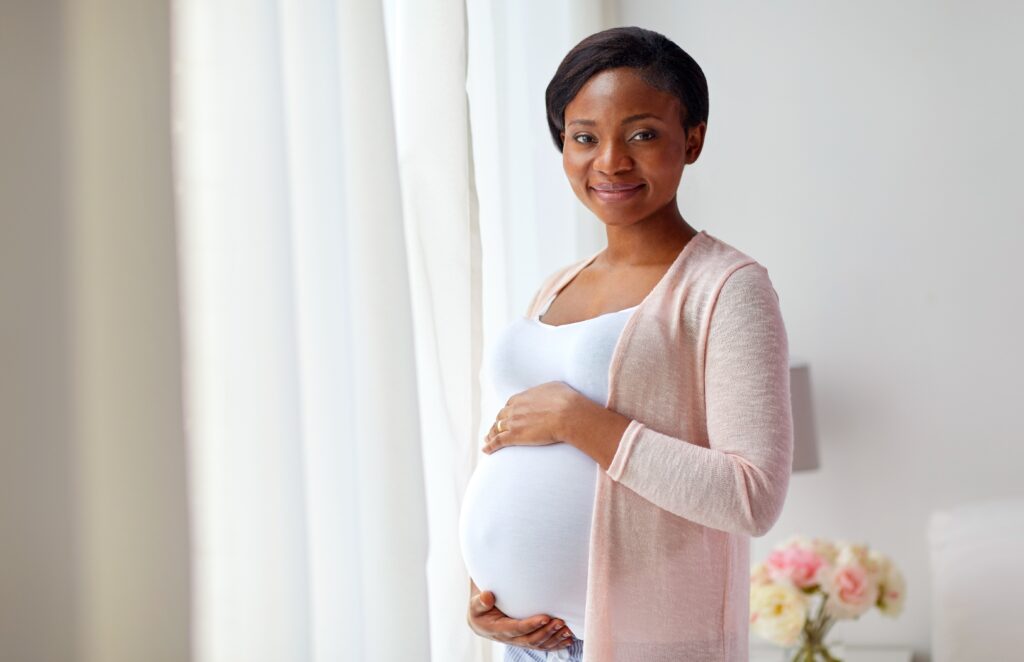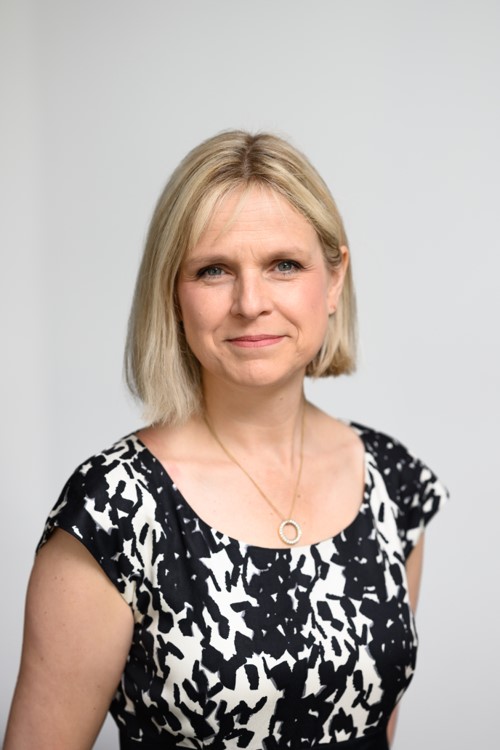It is an unacceptable fact that black and Asian women and people who give birth are more likely than those who are white to die during birth or the following year.
More specifically, black women are four times more likely to die during pregnancy or postnatally than white women. In comparison, Asian women are twice as likely to die as white women during their pregnancy or within the first year after giving birth.
These insights from the MBRRACE-UK 2021 report are driving a new focus across Academic Health Science Networks on improving birth outcomes for ethnic minority populations to lower risks and ensure safer, equitable care for everyone.
Although more research is needed to better understand the cause of the poorer outcomes for black and Asian women and birthing people, and their babies, a Public Health England report identifies the following common issues:
- Low socio-economic status or social support
- Lack of proficiency in English
- Multiple vulnerabilities such as female genital mutilation or recent migrant status
- Policy of charging undocumented migrants for maternity care
- A ‘one size fits all’ approach to maternity care which does not consider differences in pregnant women’s abilities to understand or access care, or serve the most vulnerable appropriately, can result in inequalities in healthcare provision, contributing to structural racism
- Cultural barriers combined with insufficient training of healthcare professionals in cultural sensitivity and knowledge
The NHS Long Term Plan aims to achieve 50% reductions in stillbirth, maternal mortality, neonatal mortality and serious brain injury by 2025. In this blog, we look at six key types of work that AHSNs are involved in, which are supporting this goal and driving safety improvements for mothers, birthing people, and their families.
Peer support and training to support quality improvement in maternity care
Inspired by a shared vision that one day black mothers will no longer be disproportionately at risk during their pregnancy and the first year after giving birth, the West of England AHSN is working with partners Representation Matters and BCohCo on a project called Black Maternity Matters.
Maternity staff from across the Bristol, North Somerset and South Gloucestershire Local Maternity System will form a supportive, collaborative practice, providing a psychologically safe space to explore the issues facing black mothers and birthing people and develop practical changes to offer more equitable maternity services and care.
Having started in May 2022, 15 midwives are participating in an innovative six-month education and training programme focusing on cultural competency and diversity fluency.
Co-producing maternity services to ensure a variety of voices are heard and can influence services
Whose Shoes?
Midwife and Darzi Fellow, Rosie Murphy, has been leading some work on perinatal inequalities in Croydon, focusing on black and minority ethnic families’ accessibility to and engagement with the health system. She has been supported by the Health Innovation Network in South London.
A ‘Whose Shoes?’ engagement event attended by around 40 healthcare professionals, parents and voluntary sector representatives has been held to share experiences and ideas for improving services.
The session has resulted in cultural competency training being provided to all maternity staff, increased access to translators, improvements to feedback mechanisms and a strategy to engage dads. The group plans to co-design the ongoing HEARD (Health Equity and Racial Disparity) campaign to take a collaborative approach to designing the continuing strategy and impact evaluation.
Black and Asian Maternity Advisory Group
Greater Manchester and Eastern Cheshire Local Maternity System established their Black and Asian Maternity Advisory Group in 2021 to better understand the reasons black and Asian women and have worse outcomes than those who are white and explore solutions together.
Twelve maternity standards of care have been developed in addition to the existing standards that maternity services use. These will become integral to providing care for women and birthing people, their families, and staff.
Smoke-Free Babies
Smoking in pregnancy is the leading modifiable risk factor for a range of poor clinical outcomes. Women from the most deprived communities are 12 times more likely to smoke during pregnancy than those from more affluent areas.
The National Maternity Safety Improvement Programme (MatNeoSIP) aims to contribute to increasing the number of smoke-free pregnancies to 94% or more by March 2023.
West Midlands AHSN is supporting this aim by collaborating with National Maternity Voices on a project called ‘Smoke-Free Babies’ to work with women, pregnant people and families that are disadvantaged by inequalities such as socio-economic deprivation and ethnicity. This group forms the majority of those who smoke through pregnancy. The project aims to understand their experiences and explore the barriers that prevent them from stopping smoking.
Developing a greater understanding of Vitamin-D deficiency
Health Innovation Manchester are working to increase knowledge around Vitamin-D deficiency among populations most at risk.
Vitamin-D deficiency during pregnancy has been shown to create a higher risk of poor outcomes including potentially life-threatening conditions for mothers and babies e.g., pre-eclampsia, low birth weight and pre-term birth, all significant risk factors for infant mortality.
In the UK, estimates indicate that Vitamin-D deficiency is common in pregnant women (up to 50%) and their breastfed infants (up to 56%). Vitamin-D deficiency has been reported in 64 % of pregnant Middle Eastern women, 58% of pregnant black women and 47% of pregnant Asian women, compared to only 13 % of Caucasian pregnant women.
There is a lack of research about the factors that may impact Vitamin-D supplementation uptake for those who are pregnant. Most studies on Vitamin-D deficiency and supplementation are clinically focused on measuring Vitamin-D deficiency and its effects, rather than attempting to understand the root cause. These include barriers to effective supplementation, particularly in populations most at risk, and what might help them manage or prevent their increased risk. This Health Innovation Manchester study aims to fill this gap.
Creating a safety-focused culture in maternity units
Within the Eastern AHSN region, the Maternity and Neonatal Safety Improvement Programme is managing the Regional Equality Diversity and Inclusion workforce working group, focusing on improving leadership to create a safe culture in maternity units and developing a tailored programme to increase ethnic minority representation at staff band 7 levels and above.
This is underpinned by the NHS People Plan which states there is “strong evidence that where an NHS workforce is representative of the community that it serves, patient care and the overall patient experience is more personalised and improves” and Workforce Race Equality Standard (WRES) data showing that people from ethnic minorities are more likely to be nurses, midwives and health visitors compared to their representation in the population, but are under-represented in senior roles.
Additionally, the ‘Optimisation: The Right Place of Birth’ exception reporting forms now include key demographics that help identify the most vulnerable people.
Providing earlier access to midwifery care
West Midlands AHSN is working to support expectant parents from minority ethnic backgrounds with limited English language skills and living in low-income households to access early midwifery care.
Expectant parents will, including information about vaccinations and vitamin supplementation, at the earliest opportunity. An enhanced self-referral will also be offered to vulnerable families at the earliest stage of pregnancy to support early intervention and planning. The aim is to give an improved experience in addition to improving maternal and perinatal outcomes.
This innovative project and its learning will be shared across Local Maternity and Neonatal Systems as an example of providing equitable access and care to the most vulnerable families.
The future
With dedicated projects working to understand and address the inequalities faced by black and Asian mothers and birthing people, the AHSN Network, together with partner organisations and people from black and Asian backgrounds, are working towards safer and more equitable care for today and the future.

The government has set out three shifts it wants to see happen: treatment to prevention, hospital to community, analogue to digital. HealthTech has a crucial role in supporting the delivery of all three. But using technology to help deliver these changes requires procuring the technology, and when all the noise is about there being no [...]

Dr Anish Bhuva, is the founder of Pace MRI, a Consultant Cardiologist at Barts Heart Centre and an Associate Professor at University College London. Tell us about the innovation. What does it do, how does it help, who does it help and why is it important? Pace-MRI is an award-winning digital tool that manages complex [...]

As we celebrate International Women’s Day, Anna King, Commercial Director at Health Innovation Network South London, identifies how FemTech is 'Accelerating Action' in UK healthcare and driving economic growth. In recent years, FemTech - the sector focused on women’s health and wellness technology - has gained significant traction globally. In the UK, this growing sector [...]









